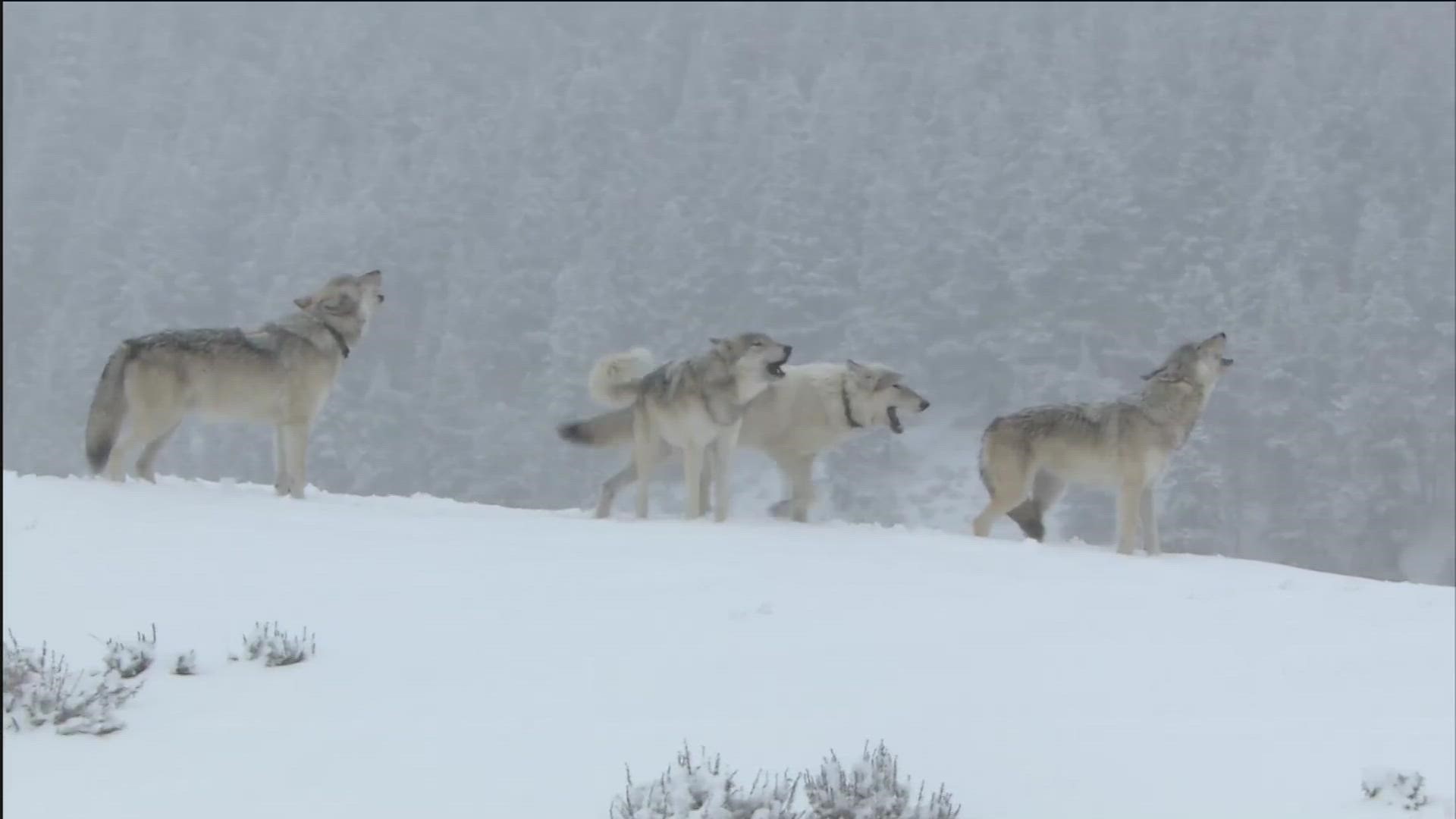IDAHO, USA — In Idaho, wolves play a unique part in the ecosystem.
"We're a very special place," said Suzanne Stone, International Wildlife Coexistence Network director. "There's not many places in the world that are wild enough to be able to host animals like wolves."
Recent Idaho Fish and Game data shows about 1,300 wolves live around the state. But not everyone's a fan.
"Wolves, in general, are controversial," said Roger Phillips, Idaho Fish and Game spokesperson. "[They] have been since the day that they were reintroduced into Idaho."
Most of the controversy stems from wolves' predatory nature. Data shows wolves killed 289 livestock from July 1, 2022, to June 31, 2022.
Since 2014, they've killed nearly 1,300 livestock from about 300 different livestock producers. Phillips said they're trying to decrease those numbers through a new wolf management plan.
"We just want to bring those wolf populations down to reduce livestock depredations and also be able to recover some of our elk herds when they're down in some parts of the state," he said.
Fish and Game hopes to cut the wolf population from about 1,300 to 500 by 2028. Phillips said that number is based on what the U.S. Fish and Wildlife Service recommended when wolves in Idaho were removed from the Endangered Species list.
It's more than a 60% cut.
"In March, we'll be setting our big game regulations," Phillips said. "So, one of the proposals is to extend some of those hunting and trapping seasons."
Currently, there's no limit on how many wolves people with a hunting and trapping license can kill. Some wildlife conservationists think the proposal goes too far.
"There's so many other things that take livestock," Stone said. "Diseases far outweigh what we lose to any of the natural wildlife that we have here in the state."
Amanda Wight, U.S. Humane Society wildlife protection program manager, said conflicts between wolves and livestock are rare. But when there are problems, non-lethal solutions are much better.
Solutions include having livestock guardian dogs, range riding and having devices that emit light or noise, she said.
"Wolves do not need to have the numbers managed," Wight said. "We've seen in the Great Lakes region, where there hasn't really been trophy hunting and trapping, that their populations have really stabilized Michigan."
Phillips said Idaho Fish and Game encourages non-lethal solutions and that this plan isn't anything out of the ordinary.
"We're just putting the kind of management tools in place that we've used on many other wildlife in Idaho," he said.
Currently, Fish and Game is looking for community feedback on the proposal. People can submit letters through its website.
Wight said the federal government could potentially step in and block the proposal if they put wolves in the Northern Rocky Mountains back under the Endangered Species Act.
She said U.S. Fish and Wildlife Services officials are currently evaluating a petition about the subject.
Watch more Local News:
See the latest news from around the Treasure Valley and the Gem State in our YouTube playlist:

